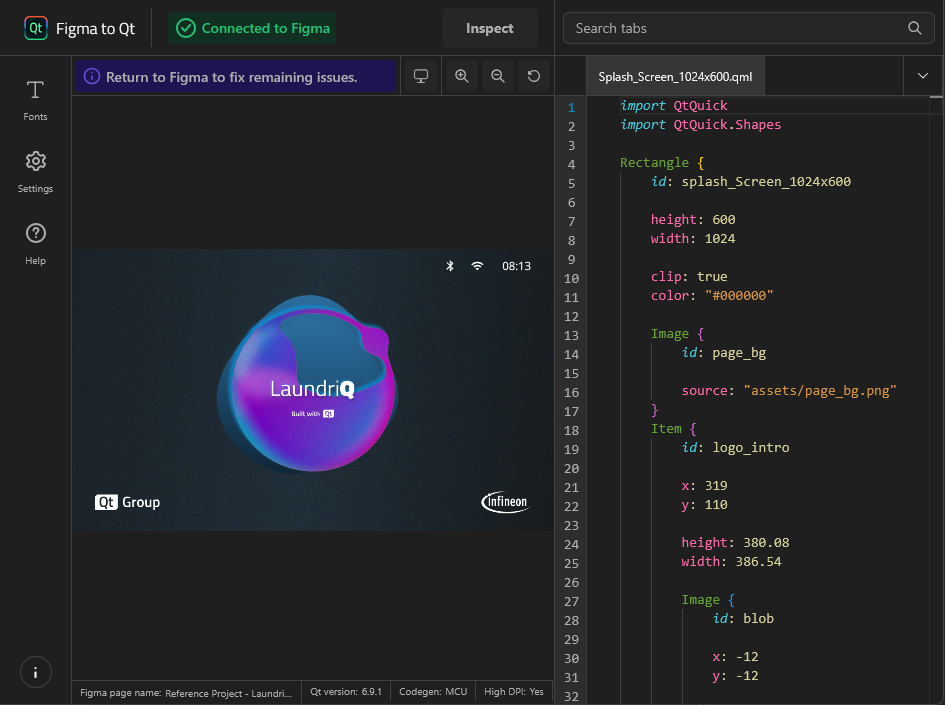Convert designs
Figma to Qt converts Figma layers into QML types. To avoid conversion errors, follow the Design guideline.
To convert designs into QML code:
- In Figma, select one or more layers.
- In the plugin, select
 (Preview).
(Preview).
The quick guide in the plugin Home tab.
Check the converted design in the live preview.

A converted layer in the live preview.
If a Figma layer has properties that have no equivalent in QML, it is converted into an asset and an Image QML type is created for it. The plugin warns about these issues and offers fixes for some of them.
Convert into Qt for MCUs
With Qt for MCUs, you can develop for microcontrollers (MCU). To convert the design using only those properties of QML components that you can use on MCUs:
- In the plugin, select
 (Settings).
(Settings).
The Code generation section in the plugin settings.
- In Code generation, select Use Qt for MCUs compatible types.
- Select Optimize text rendering to convert text layers into StaticText types.
The generated QML follows the design guidelines for Qt for MCUs.
If a Figma layer has properties that you cannot use in Qt for MCUs, the plugin warns you about it and might offer to fix the issue. This changes the Figma design, as described in Conversion issues.
Note: Qt for MCUs supports a subset of QML types and their properties. Therefore, automatically fixing conversion issues might remove a lot of functionality from the design that you cannot easily get back. Only do this if you don't need a QML version for embedded devices.
What is Qt for MCUs?
Qt for MCUs is a comprehensive framework that supports various embedded platforms. It has Qt Quick Ultralite (QUL) and a toolkit that you can use to design, develop, and deploy UIs on MCUs. Also, depending on the target device, you can run applications on Bare Metal, Linux, RTOS, or Zephyr® operating systems.
Qt Quick Ultralite is a lightweight implementation of Qt Quick that provides a QML API and an efficient graphics rendering engine with a low memory footprint. The engine is optimized for MCUs and other resource-constrained devices.
See also Render layers as images, Skip pages and layers, Use the Spark font engine on Qt for MCUs, and Conversion issues.
© 2024 The Qt Company Ltd. Documentation contributions included herein are the copyrights of their respective owners. The documentation provided herein is licensed under the terms of the GNU Free Documentation License version 1.3 as published by the Free Software Foundation. Qt and respective logos are trademarks of The Qt Company Ltd in Finland and/or other countries worldwide. All other trademarks are property of their respective owners.

